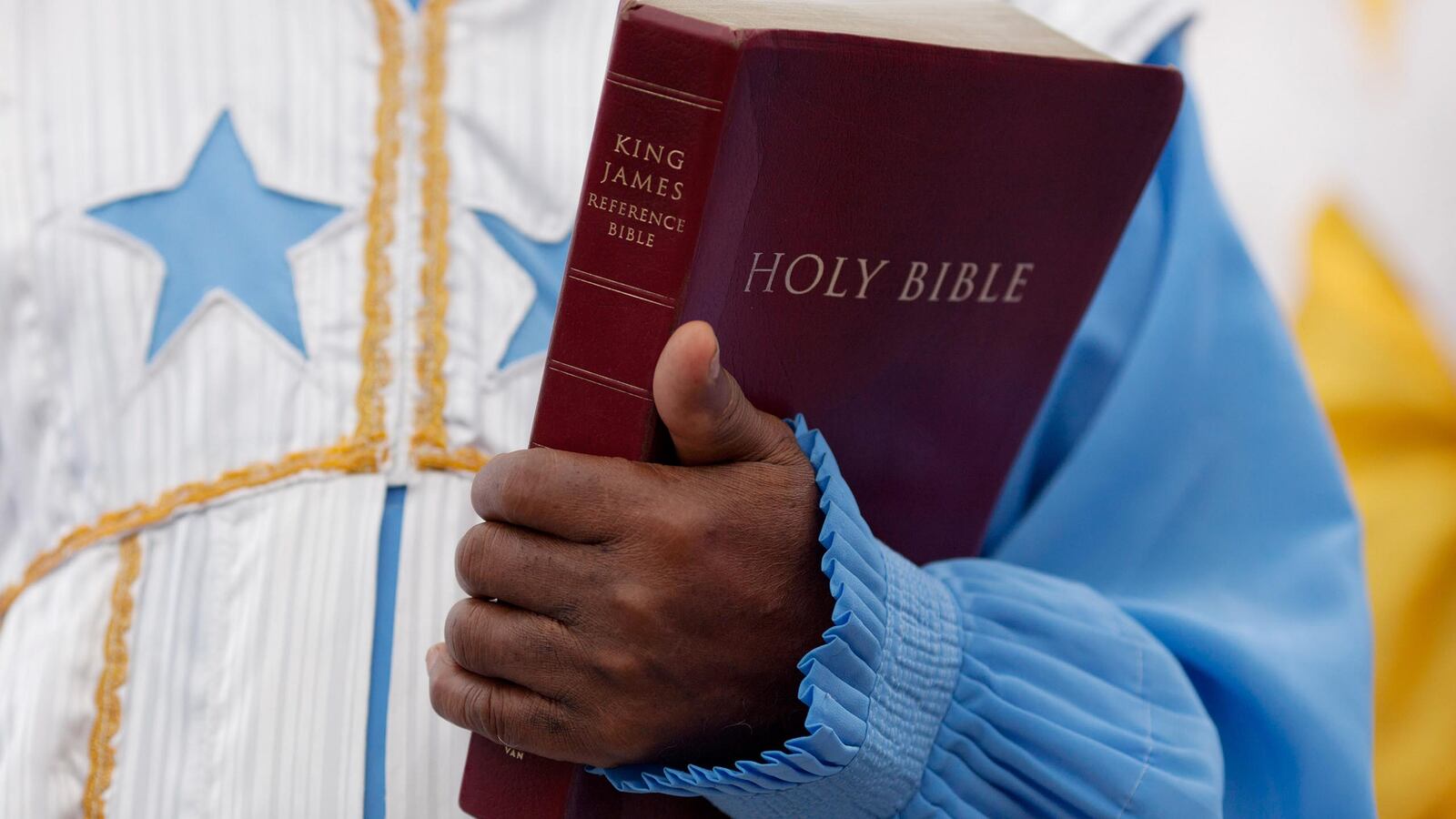The King James Version of the Bible is the most popular and influential version of the world’s most printed book. And today millions of Christians turns to the King James, or Authorized Version, of the Bible when they look for religious inspiration and guidance. It’s the Bible of choice for fundamentalist Protestants, great figures of literature, and numerous American presidents. But who is responsible for the most popular version of the Bible? And did they have any idea how influential their work would be?
Just over 400 years ago, King James I of England commissioned more than 40 translators to produce an accurate vernacular translation of the Greek and Hebrew texts. Those translators divided into “companies” that worked on various sections of the Bible and then reconvened to collate and revise their translations. How they actually translated the Bible has always been shrouded in mystery. According to some fundamentalist Christians, these translators were guided by the Holy Spirit and miraculously agreed on the wording of the text. Biblical scholars and historians, including evangelical Christian scholars, have been pushing back against this view for over a century. But the discovery of new manuscripts in the archives of some of Europe’s oldest libraries is shedding light on how the KJV came to be, with some surprising results.
Dr. Nicholas Hardy, an early modern scholar at the University of Birmingham, has unearthed new sources that point to the participation of French scholar Isaac Casaubon in the translation of the KJV. Though a prominent scholar in his own day, Casaubon was not previously thought to have been involved in the project at all. But correspondence between Casaubon and John Bois, one of the KJV translators, and Casaubon’s diary in which he records conversations with Andrew Downes (another KJV translator) reveal that the KJV was not an all-English affair. In fact, Casaubon was hardly proficient in English. As Hardy writes in an article, Casaubon’s diary reveals that he struggled to follow English language sermons in church. The British like to think of the KJV as an all-English production that is closely tied in the cultural imagination to national identity, but actually, as Hardy told me, “England was a massive net importer of biblical scholarship in this period, and that situation wouldn’t change for at least a half-century.” It might be the King James Bible, but it was put together with the help of one of France’s greatest minds.
But the discoveries of this correspondence, together with Hardy’s discovery of a copy of the Old Testament that was heavily annotated by Bois, can tell us a great deal about the kinds of philological and interpretive issues faced by the KJV’s translators.
In trying to produce accurate translations that made sense of the Greek, Bois and Causaubon used methods that today would be called “historical-critical.” They struggled with inconsistencies in the chronology of books of the Hebrew Bible and used Greek literature to deduce the meaning and function of passages of the Bible. In their correspondence Bois points to an article Causabon had written on riddles in Greek literature as a parallel to a passage in the Old Testament apocrypha (a part of the King James Version people often don’t know exists). That they are using historical methodologies is stunning; not only because we tend to associate these techniques with the Enlightenment period and the rise of science, but also because, today, conservative fundamentalists consider these methods to be an attack on the Bible itself.
When I asked Hardy, who is working on a book for Princeton University Press on the subject, what this means for Bois’ views of the status of the canonical Bible, he said that “a number of the translators, including Bois and Casaubon, did not hold extreme doctrines of inerrancy or verbal inspiration that prevented them from applying these methods not just to the Apocrypha but also to the OT and NT.” Their views anticipate and parallel those of many scholars working in biblical studies today, but they do not match up with those who use their Bible as the inerrant word of God and think “that orthodox views of Scripture and historical criticism are incompatible.”
Contrary to the mythology that persists among some “King-James-Only” Christians today, far from producing identical texts, the translators of the KJV disagreed with one another and wrestled with textual issues all the way into the final stages of revising the King James Version. The correspondence between Bois and Casaubon dates to late 1610 or possibly early 1611, the same year that the KJV started to be printed, a period in which we might expect them to be copy editing. The process in general, Hardy told The Daily Beast, was much more confused than is usually thought: “people were drafted in very late in the process, they disagreed with each other a lot and reached awkward compromise solutions.” All of the confusion is one of the reasons that the KJV was revised so many times. The modern version is based on the 1769 revision.
Today there are many who would be worried by the chaotic way in which the KJV was produced, but Hardy says that “the translators and many of the early readers of the KJB were, I think, quite comfortable with its imperfections and inconsistencies. They would have been shocked to find anyone placing it on a pedestal, and they would have been genuinely scandalized to learn that some people have seen it as inspired or somehow divine.” Nor did they seem to think that their translation of the Bible was the final word on the matter, Hardy told me, “They probably would have expected another team of translators to come along in 50 years’ time and do a better job than them, based on new research, and it’s only a matter of historical accident that that didn’t happen.”






